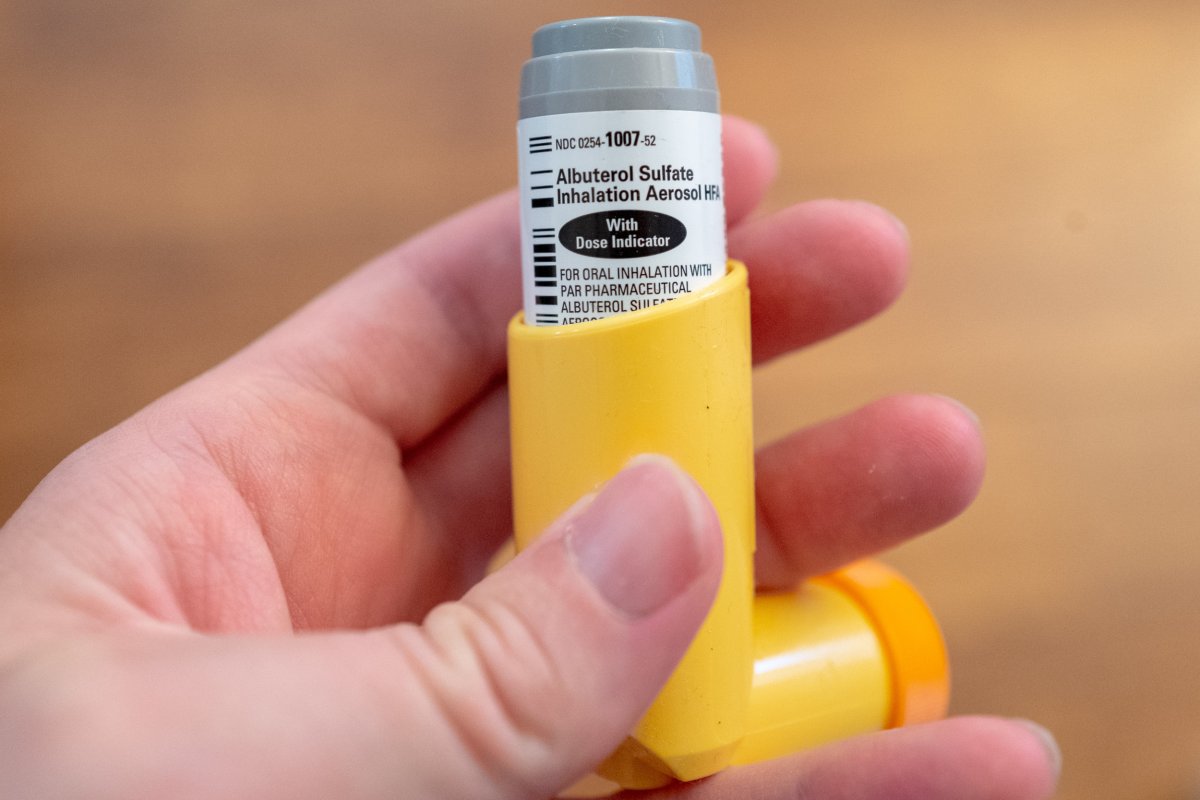A switch in Medicaid's formula could mean many children will go without inhalers in the coming months.
The process change means drugmakers have to pay Medicaid if list prices on older products are higher than current inflation rates. While the change made the most impact on insulin prices, inhalers also are dropping, so companies can get around the new rule.
Already, three of the largest inhaler manufacturers said they'd be capping inhaler co-pays at $35 monthly. That includes Boehringer Ingelheim, AstraZeneca PLC and GlaxoSmithKline for the Advair Diskus and Advair HFA inhalers as well as Symbicort and Spiriva HandiHaler and Atrovent HFA units. The companies have also lowered several list prices in what is good news for patients on a budget.
The companies have not acknowledged the price cuts as a reaction to the new Medicaid rebate update, and some say they are reflective of their desire to reduce barriers of access to lifesaving medications.

"We continually look at market dynamics to assess what more we can do to address barriers to access and affordability of our medicines to help patients living with respiratory diseases lead healthier lives," an AstraZeneca spokesperson told Roll Call.
Those with asthma and chronic obstructive pulmonary disease (COPD) will be affected by the price cuts, but there's a dark side to the new guidance.
Drugmaker GlaxoSmithKline has already removed two well-known children's inhalers, Flovent HFA and Flovent Diskus, while one other option, Organon's Asmanex, is said to already be facing a shortage.
"It's difficult to say whether other drug manufacturers will discontinue other inhalers," Louise Norris, a health policy analyst for healthinsurance.org, told Newsweek. "But from a consumer perspective, the most important point is to ensure continued access to an inhaler that will enable them to properly manage their asthma."
GlaxoSmithKline, in conjunction with Prasco, said the company launched an authorized generic for Flovent HFA in May 2022 and an authorized generic for Flovent Diskus in October 2023.
"These authorized generics will provide patients in the U.S. with potentially lower cost alternatives of these medically important products," a spokesperson for GlaxoSmithKline told Newsweek. "We recognize that patients have a number of options in the therapeutic area and therefore remain committed to ensuring the affordability of our medicines."
While GlaxoSmithKline discontinued manufacturing the branded Flovent HFA and branded Flovent Diskus for the U.S. market, the company said it should not disrupt the supply available to patients.
"It's important to understand that the transition from branded to authorized generics will not have an impact on our ability to supply the market and we expect minimal disruption for patients," the spokesperson said.
Other Changes for Medicaid
This isn't the only big change potentially coming to Medicaid patients this year.
Republican senators Bill Cassidy of Louisiana, John Cornyn of Texas and Tim Scott of South Carolina, along with Democrats Tom Carper of Delaware, Mark Warner of Virginia and Bob Menendez of New Jersey, proposed the Delivering Unified Access to Lifesaving Services (DUALS) Act of 2024 in hopes of improving Medicare and Medicaid for dual eligibles this month.
If passed, the DUALS Act would require each state to develop a comprehensive and integrated health plan for dual-eligible beneficiaries. This would either move forward as an entirely new system or an addition to existing coverage options.
The changes could impact about 12.2 million low-income or disabled Americans who are jointly enrolled in Medicare and Medicaid.
"Patients dually eligible for Medicare and Medicaid have much worse outcomes than other groups even though there is a lot more money spent on their care," Cassidy said in a statement. "Making Medicare and Medicaid better work together makes patients healthier and saves money for taxpayers."
Update 03/27/2024 9:39 a.m. ET: This article was updated with comments from GlaxoSmithKline.
Uncommon Knowledge
Newsweek is committed to challenging conventional wisdom and finding connections in the search for common ground.
Newsweek is committed to challenging conventional wisdom and finding connections in the search for common ground.
About the writer
Suzanne Blake is a Newsweek reporter based in New York. Her focus is reporting on consumer and social trends, spanning ... Read more
To read how Newsweek uses AI as a newsroom tool, Click here.








